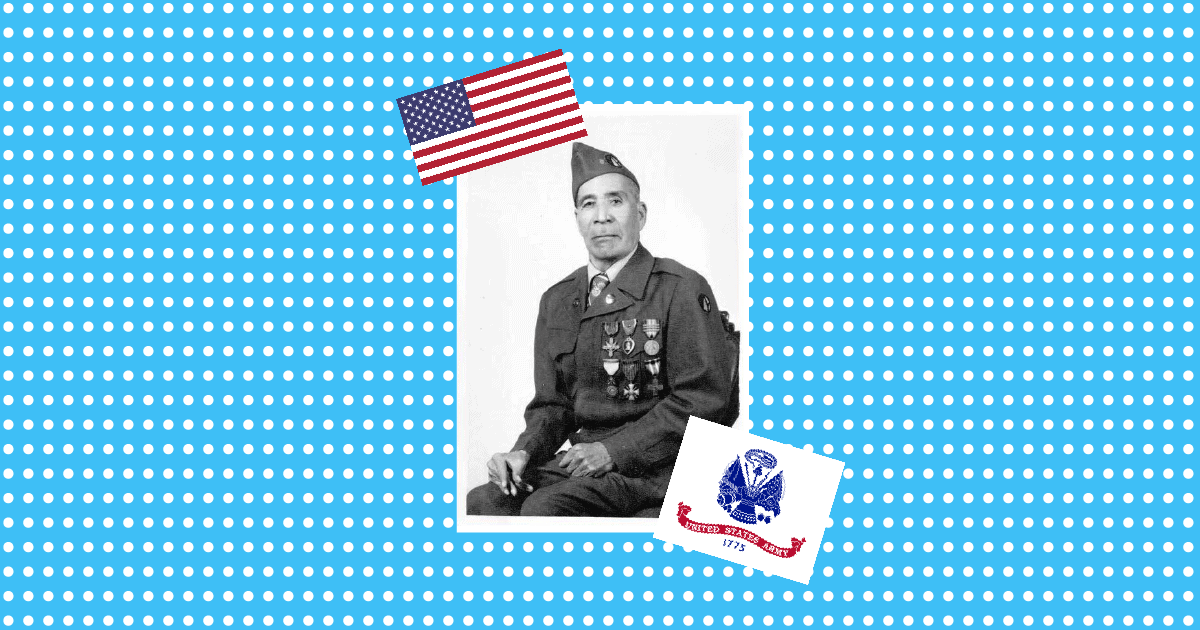Rep. Veronica Escobar (D- El Paso) has introduced legislation to award the Medal of Honor to Marcelino Serna, a Mexican-American soldier who served in World War I. Historians and advocates have long argued that Serna was denied the nation’s highest military honor due to racism.
Serna was born in Mexico and arrived in the United States as an undocumented immigrant in search of a better life. While working as a farm hand in Colorado, Serna and a group of men were picked up by federal authorities. Rather than face deportation, Serna volunteered for the U.S. Army. This occured in 1917, the same year that the United States declared war on Germany, so Serna quickly found himself shipped off to Europe. Upon arriving in France, Serna learned that the Army had become aware of his status as a Mexican national and was offered a discharge, but he insisted that he stay with his comrades.
Serna participated in some of the deadliest fighting in U.S. military history. At the Battle of Saint-Mihiel, Serna’s unit encountered a machine gun nest that killed 12 men. In spite of bullets hitting his helmet twice, Serna was able to crawl close enough to throw four grenades, causing the eight surviving Germans to surrender.
Later, Serna was conducting a scouting mission during the Meuse-Argonne Offensive when he spotted a German sniper. After wounding the sniper with his rifle, Serna followed him back to a trench filled with enemy soldiers. With nothing but his rifle, two pistols, and a few grenades, Serna was able to single-handedly kill or capture 50 Germans.
Serna was shot in both of his legs four days before the war ended. For his bravery, Serna was awarded the Distinguished Service Cross, the U.S. Army’s second highest medal as well as the French Croix de Gurre, making him one of the most decorated World War I veterans from Texas. However, an officer told Serna that a “buck private” could not be awarded the Medal of Honor and that he did not speak enough English to be promoted (most of the men in Serna’s unit spoke little English and one bilingual soldier had to serve as a translator for the entire company). Serna later became a U.S. citizen and spent the rest of his life in El Paso.
Now, more than 100 years after Serna’s service, Rep. Escobar is seeking to correct this long-lasting injustice.
“El Pasoan Pvt. Marcelino Serna, the most decorated WWI veteran in Texas, was denied the Medal of Honor due to prejudice,” tweeted Escobar. “I introduced a bill to right this wrong, end the discrimination against minority servicemembers, and award Pvt. Serna the Medal of Honor he deserves.”
Escobar also said that GOP efforts to restrict the teaching of racism in schools made it even more important to recognize the stories of people like Marcelino Serna. “It is shocking that we have legislators who want to do everything possible to whitewash history to sweep atrocities under the rug… This is why we have to redouble our efforts to find those names of those heroes, so we can celebrate them and tell their stories,” Escobar told NBC News. “We cannot recognize why they were denied their recognition without understanding what created that denial.”
Lawmakers have made other efforts to recognize Serna’s valor. State Sen. Cesar Blanco (D-El Paso) introduced a resolution to award Serna the Texas Legislative Medal of Honor in the latest legislative session, which passed both chambers and is awaiting approval by Gov. Abbott.
Racial disparity in the medal process has long been an issue in the U.S. military. For example, African Americans make up only two percent of Medal of Honor recipients in spite of being a far larger share of the military. Efforts are now underway to correct the historic inequity, with the Defense Department conducting a Congressionally-mandated review to examine minority World War I veterans who may have been denied the Medal of Honor due to racism. Similar reviews have been done in the past; in 2014 President Obama awarded the Medal of Honor to 24 veterans that had previously been overlooked because of their heritage, 17 of whom were Latino.
While Serna’s Medal of Honor would come over a century later, long gaps are not unheard of when it comes to recognizing acts of valor. Alonzo Cushing, a Union artillery officer who fought in the Civil War, was awarded the Medal of Honor 150 years later by President Obama.
If Serna is awarded the Medal of Honor, he will be the second Latino veteran of World War I to receive the nation’s highest military honor. The first was David B. Barkely, the son of a white father and Mexican-American mother who was also from Texas and served in the same division as Serna. Barkely was awarded the Medal of Honor posthumously in 1919, although his Latino heritage did not become known until years later.
William serves as the Washington Correspondent for the Texas Signal, where he primarily writes about Congress and other federal issues that affect Texas. A graduate of Colorado College, William has worked on Democratic campaigns in Texas, Colorado, and North Carolina. He is an internet meme expert.





